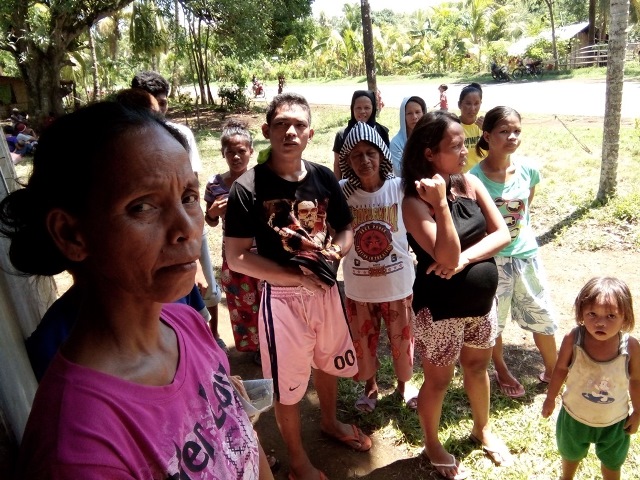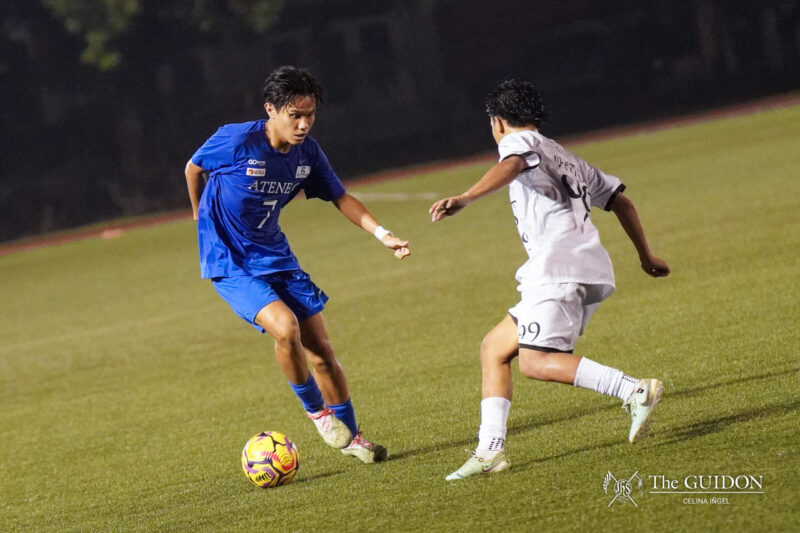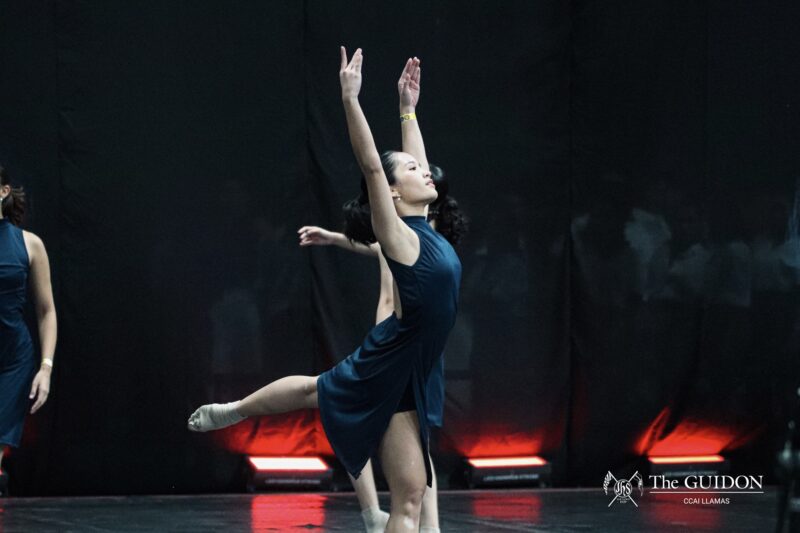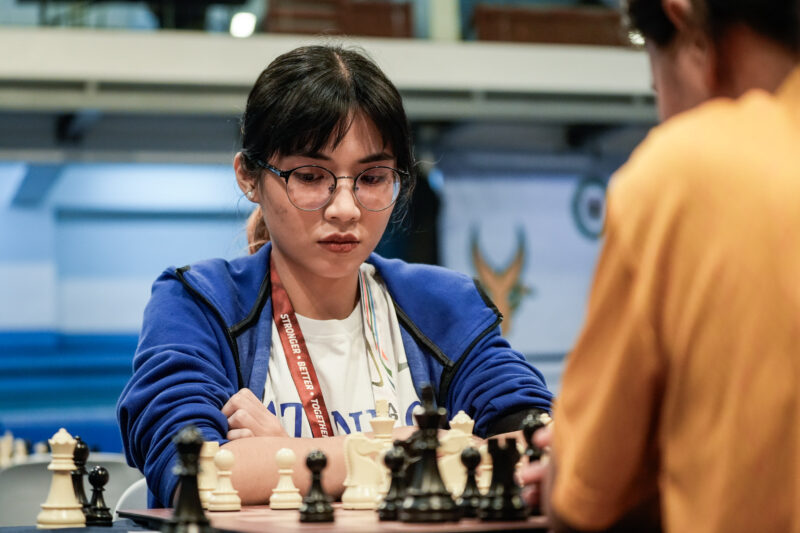“IT’S A shame.”
In interviews with the GUIDON, Coalition of Ateneans for Indigenous Peoples (CAIP) Head Dane Ancheta and Indigenous Peoples Advancement Advocacy Head of the Loyola Mountaineers (LM) Tristan Querol said that the Ateneo de Manila community is not doing enough to help address the plight of indigenous peoples (IPs) all over the country.
Ancheta said that the Ateneo rarely gets mobilized for IP issues except during extreme moments of crisis. However, most of the time, there is little action done.
“[Ateneans] get concerned when it’s something loud like the Kidapawan [massacre]… Those are things that appeal to the feelings, and that’s what sells,” she said.
Last March 31, police in Kidapawan City, North Cotabato fired repeatedly at a crowd of farmers and Lumad, or IPs from Mindanao. The groups were gathered to seek remedy for the drought and famine in their lands. A total of three persons were killed, 87 went missing and 116 were injured in the incident.
“How long can you keep the feelings [of outrage]? How long can you keep the attention? Do people have to die [to be given] attention?” Ancheta said.
During these cases, Ancheta said that the current arrangement is not enough– help in times of crises provide temporary relief but do not drive at the heart of the problem.
“[The issue facing the Lumad] is an underlying problem that’s been going on for the past 40 years, and these are just the little things that show up, and they get people’s feelings, but there really is an underlying problem,” Ancheta said.
Steering the coalition
The CAIP, a coalition of students under the Sanggunian dedicated to the research on and support of the indigenous peoples of the Philippines, was originally established as the Atenista Para sa mga Lumad as a way of addressing the inaction in the Ateneo de Manila University.
However, according to CAIP moderator Michael Liberatore, the discourse surrounding indigenous peoples’ rights has been clouded by other interests.
“When you talk about the ‘IP agenda,’ it’s sometimes difficult to get at because it’s not always clear when there’s an IP agenda versus groups that are using IPs for their ideological agendas,” he said.
“There’s that challenge: is it the IP issue or is the IP issue being used?” he added.
Liberatore said further that CAIP means to “bring to the surface an honest look at what’s happening without deciding ahead of time what side we’re supposed to be on.”
Ancheta echoed Liberatore’s statements and said that the CAIP is only one of a few groups that engage in the issues of IPs in ways that help the Lumad people themselves, instead of being subservient to an ulterior motive.
“Nobody talks about [the Lumad]. If somebody talks about them, it’s because they have their agendas. They want to push their own political agendas. They [end up not] understanding or helping indigenous people at all, even sometimes to the extent of harming them,” said Ancheta.
However, Ancheta maintained that the CAIP remains a discursive organization, and that not all its members share the same views about IP issues but are given the opportunity to share them to the group.
“My opinions are not the same as my other members’ opinions because we’re different people. Even in [the CAIP], we have different [opinions], which is good because it’s not an echo chamber,” Ancheta said.
Proximity problem
However, Ancheta said that the root of the problem lies in the disconnect between the Lumad community and the Ateneo de Manila University.
“There’s a lack of information that [Ateneans] can really rely on. [The Lumad] are really far away. We don’t really see ourselves working alongside them because of the distance: in language, [and in other aspects],” she said.
Even in other organizations with IP rights advocacies, such as LM, the thrust is not pushed as much.
According to Querol, his organization finds it hard to fight for the rights of IPs because of the lack of information available to them.
“We don’t even get news, and sometimes we doubt the sources that we get, kasi baka filtered na siya by government [apparatus], and usually kalaban ng IP is government or ‘yung mga businessmen,” Querol said.
“[LM] is pretty quiet about it because we don’t know where to start,” he added.
He also said that most Ateneans live their lives in the Manila area, and do not get to experience the lives of the indigenous peoples from the far-flung provinces of the country.
Liberatore said further that Ateneans are unable to understand these IP issues except through a lens of urban “Manila-centrism.”
“One of the great struggles, especially with IP issues is that we talk about the Manila-centric approach and the way that Manila is always the center of focus, and yet, so many of our IP groups are in marginal places. It becomes easy to focus on the Manila issues first, then think about the other ones later,” he said.
Moving forward
In light of this, Ancheta said that she hoped to create linkages between members of indigenous groups and the Ateneo de Manila community. She said that the CAIP not only works with indigenous groups, but also considers them as friends and partners.
“Kami, we just don’t work with these people; we’re actually friends with them. We build relationships when they come here [to the Ateneo] we welcome them,” she said.
She said that continuous and sustained engagement with the Sanggunian and the larger Ateneo community is necessary in order to communicate the objectives of the CAIP and other IP rights advocacies. As a task force of the Sanggunian, the CAIP answers to the main organs of the student government.
“[The Sanggunian] is very much supportive of us … but they’re also busy fixing their internal arrangements. Given their [extra workload], they [remain] supportive of the group. We keep them updated … that’s how everyone’s in line with our objectives,” she said.
Despite this, Ancheta said that there remains a responsibility for students to act out the Atenean principles of service.
“We’re men and women for others, [and] we should be the first ones to speak out if something’s wrong because we are in the position to [do so]. We’re in Manila. People listen to us. For IPs, they don’t have much of a loud voice because it’s always muffled by other groups,” she said.
Liberatore said that the indigenous peoples should not be disregarded, as they hold particular significance to the lives of Filipinos in the present day.
“We annihilate parts of ourselves, I think, when we assassinate others. There’s a self-annihilation that comes into [disregarding IPs], and a loss of traditions that help us to see [the world] more broadly,” he said.
For Querol, it remains important for Ateneans to learn up on IP issues and current events.
“Read up. Research. Just know. It’s a complex thing– it’s not going to be easy,” he said. “Marami diyang magkakasalungat na maririnig kayo because not all sources are credible. (You will hear a lot of conflicting information because not all sources are credible).”







